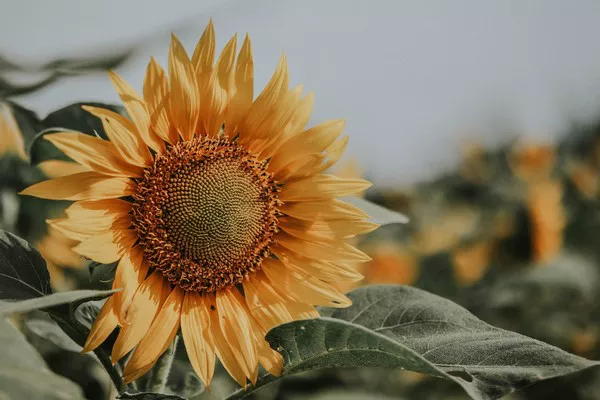Pollen allergies, also known as hay fever or allergic rhinitis, affect millions of people worldwide, causing symptoms such as sneezing, congestion, runny nose, and itchy eyes. While medications such as antihistamines and nasal sprays can provide relief from pollen allergy symptoms, some individuals may prefer to explore natural remedies to alleviate their symptoms. In this article, we’ll explore a variety of natural approaches to combating pollen allergies, helping you breathe easier and enjoy the great outdoors without relying on medication.
Understanding Pollen Allergies: The Basics
Before we delve into natural remedies for pollen allergies, let’s first understand what causes these allergies and how pollen triggers immune responses in susceptible individuals. Pollen allergies occur when the immune system overreacts to pollen – tiny, powdery grains released by trees, grasses, and weeds as part of their reproductive process.
When individuals with pollen allergies inhale or come into contact with pollen particles, their immune system mistakenly identifies these harmless substances as threats and mounts an immune response. This immune response leads to the release of histamine and other chemicals, causing inflammation and the typical symptoms associated with pollen allergies.
Identifying Pollen Allergy Triggers
The first step in managing pollen allergies naturally is to identify the specific pollen triggers that exacerbate your symptoms. Common pollen triggers include:
Tree Pollen: Trees such as oak, birch, cedar, and pine release pollen in the spring.
Grass Pollen: Grasses such as Bermuda grass, Timothy grass, and ryegrass release pollen in the spring and summer.
Weed Pollen: Weeds such as ragweed, sagebrush, and mugwort release pollen in the late summer and fall.
By identifying the pollen types that trigger your allergies, you can take proactive steps to minimize your exposure and reduce your symptoms.
Natural Remedies for Pollen Allergies: Strategies for Relief
Now, let’s explore a variety of natural remedies and lifestyle modifications that can help alleviate pollen allergy symptoms:
1. Monitor Pollen Counts: Stay informed about local pollen counts and pollen forecasts in your area. On days when pollen levels are high, consider limiting outdoor activities, especially during peak pollen times such as early morning and late afternoon.
2. Keep Windows Closed: Keep windows and doors closed during pollen season to prevent pollen from entering your home. Use air conditioning with a high-efficiency particulate air (HEPA) filter to help remove pollen and other allergens from indoor air.
3. Use Saline Nasal Irrigation: Nasal irrigation with saline solution can help flush out pollen and other allergens from your nasal passages, reducing congestion and inflammation. Use a neti pot or saline nasal spray to irrigate your nasal passages regularly.
4. Practice Allergy-Proofing: Take steps to allergy-proof your home by regularly cleaning and vacuuming to remove pollen and other allergens from surfaces and upholstery. Consider using allergen-proof mattress and pillow covers to minimize exposure while sleeping.
5. Try Local Honey: Some people find relief from pollen allergies by consuming locally sourced honey, which may contain small amounts of pollen from local plants. While scientific evidence is limited, anecdotal reports suggest that regular consumption of local honey may help desensitize the immune system to pollen allergens.
6. Boost Immune Health: Support your immune system with a healthy diet rich in fruits, vegetables, whole grains, and lean proteins. Foods high in vitamin C, quercetin, and omega-3 fatty acids may have anti-inflammatory properties and may help reduce allergy symptoms.
7. Herbal Supplements: Certain herbal supplements, such as butterbur, stinging nettle, and quercetin, have been studied for their potential to alleviate allergy symptoms. Consult with a healthcare professional before taking any herbal supplements to ensure safety and efficacy.
8. Reduce Stress: Stress can exacerbate allergy symptoms by triggering inflammation and immune system dysfunction. Practice stress-reduction techniques such as deep breathing, meditation, yoga, or tai chi to help manage stress and alleviate allergy symptoms.
9. Acupuncture: Some individuals find relief from allergy symptoms through acupuncture, a traditional Chinese medicine practice that involves inserting thin needles into specific points on the body to promote balance and wellness. Consult with a licensed acupuncturist to explore this option.
10. Essential Oils: Certain essential oils, such as peppermint, eucalyptus, and lavender, may have decongestant, anti-inflammatory, and soothing properties that can help alleviate allergy symptoms. Use caution when using essential oils, and dilute them properly before applying them to the skin or inhaling them.
Conclusion: Embracing Natural Solutions for Pollen Allergies
Pollen allergies can be a significant source of discomfort for many individuals, but natural remedies and lifestyle modifications offer effective strategies for managing symptoms without relying on medication. By identifying pollen triggers, implementing allergy-proofing measures, and incorporating natural remedies such as nasal irrigation, local honey, and herbal supplements into your routine, you can find relief from pollen allergy symptoms and enjoy the beauty of the outdoors with greater ease.
It’s important to remember that individual responses to natural remedies may vary, and what works for one person may not work for another. Consult with a healthcare professional before making any significant changes to your allergy management routine, especially if you have underlying health conditions or are pregnant or breastfeeding. With careful planning and a holistic approach to allergy management, you can breathe easier and embrace the joys of spring and summer without the burden of pollen allergies weighing you down.
[inline_related_posts title=”You Might Be Interested In” title_align=”left” style=”list” number=”6″ align=”none” ids=”7246,7105,7102″ by=”categories” orderby=”rand” order=”DESC” hide_thumb=”no” thumb_right=”no” views=”no” date=”yes” grid_columns=”2″ post_type=”” tax=””]

































